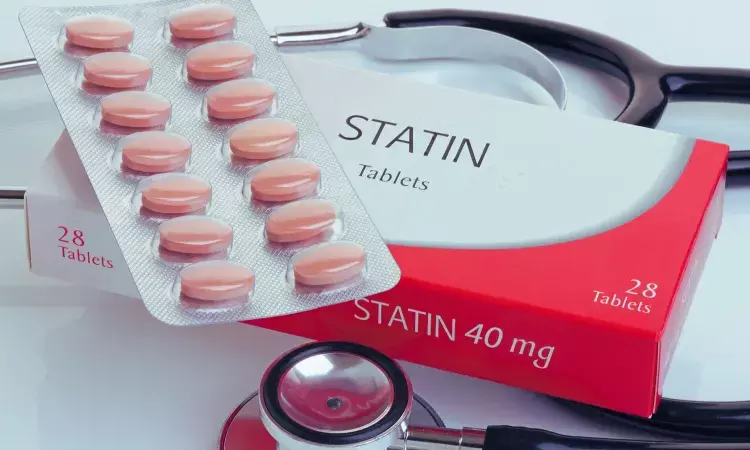- Home
- Medical news & Guidelines
- Anesthesiology
- Cardiology and CTVS
- Critical Care
- Dentistry
- Dermatology
- Diabetes and Endocrinology
- ENT
- Gastroenterology
- Medicine
- Nephrology
- Neurology
- Obstretics-Gynaecology
- Oncology
- Ophthalmology
- Orthopaedics
- Pediatrics-Neonatology
- Psychiatry
- Pulmonology
- Radiology
- Surgery
- Urology
- Laboratory Medicine
- Diet
- Nursing
- Paramedical
- Physiotherapy
- Health news
- Fact Check
- Bone Health Fact Check
- Brain Health Fact Check
- Cancer Related Fact Check
- Child Care Fact Check
- Dental and oral health fact check
- Diabetes and metabolic health fact check
- Diet and Nutrition Fact Check
- Eye and ENT Care Fact Check
- Fitness fact check
- Gut health fact check
- Heart health fact check
- Kidney health fact check
- Medical education fact check
- Men's health fact check
- Respiratory fact check
- Skin and hair care fact check
- Vaccine and Immunization fact check
- Women's health fact check
- AYUSH
- State News
- Andaman and Nicobar Islands
- Andhra Pradesh
- Arunachal Pradesh
- Assam
- Bihar
- Chandigarh
- Chattisgarh
- Dadra and Nagar Haveli
- Daman and Diu
- Delhi
- Goa
- Gujarat
- Haryana
- Himachal Pradesh
- Jammu & Kashmir
- Jharkhand
- Karnataka
- Kerala
- Ladakh
- Lakshadweep
- Madhya Pradesh
- Maharashtra
- Manipur
- Meghalaya
- Mizoram
- Nagaland
- Odisha
- Puducherry
- Punjab
- Rajasthan
- Sikkim
- Tamil Nadu
- Telangana
- Tripura
- Uttar Pradesh
- Uttrakhand
- West Bengal
- Medical Education
- Industry
Statin use tied to reduced risk of VTE in women taking hormone therapy: JAMA

USA: Findings from a case-control study published in JAMA Network Open revealed a reduced risk of venous thromboembolism (VTE) with statin use in women exposed to hormone therapy (HT). Also, HT may not be contraindicated in women taking statins.
The researchers revealed that in 223 949 women (50 to 64 years), VTE risk was 53% higher in women recently exposed to HT without current statin therapy and 25% higher in women with recent HT exposure and current statin therapy versus women not exposed to recent HT or statins.
Menopause-associated symptoms are common and can affect the quality of life. Hormone therapy (HT) is effective for many symptoms (eg, hot flashes, cognitive changes, disruptions in sleep patterns, and vaginal dryness). However, concerns regarding increased risk of stroke, VTE, or myocardial infarction can prevent many symptomatic women from receiving HT.
HT may double the VTE risk, although the clinical trials were conducted with oral, conjugated equine estrogen (CEE), and newer studies suggest lower risk with other types of estrogen, earlier initiation of therapy, and routes of administration. John W. Davis, University of Texas Medical Branch, Galveston, and colleagues conducted the study to estimate VTE risk in women aged 50 to 64 years taking hormone therapy with or without statins.
The researchers analyzed data from a commercially insured claims database in the US. The study included women aged 50 to 64 with at least one year of continuous enrollment between 2008 and 2019.
Filled prescriptions were recorded for progestogens, estrogens, and statins 12 months before the index. Recent HT was defined as any progestogen or estrogen exposure within 60 days before the index date. Current statin exposure was defined as 90 days or more of continuous exposure before and including the index date. Statin intensity was defined by the statin exposure 30 days before the index.
Cases were identified with diagnoses of VTE preceded by at least 12 months without VTE and followed within 30 days by an inferior vena cava filter placement, anticoagulation, or death. Cases were matched to cases in 10:1 on date and age. Conditional logistic regression models estimated risk for HT and statin exposures with odds ratios (OR), adjusted for comorbidities.
The study led to the following findings:
- The total sample of 223 949 individuals (mean age, 57.5 years) included 20 359 cases and 203 590 matched controls.
- Of the entire sample, 8.73% of individuals had recent HT exposure and 16.18% had current statin exposure.
- In adjusted models, individuals with any recent HT exposure had greater odds of VTE compared with those with no recent HT exposure (OR, 1.51).
- Individuals receiving current statin therapy had lower odds of VTE compared with those with no current statin exposure (OR, 0.88).
- When compared with those not recently taking HT or statins, the odds of VTE were greater for those taking HT without statins (OR, 1.53) and for those taking HT with statins (OR, 1.25), but were lower for those taking statins without HT (OR, 0.89).
- Individuals taking HT with statin therapy had 18% lower odds of VTE than those taking HT without statins (OR, 0.82) and there was greater risk reduction with higher-intensity statins.
The study showed that statin therapy was associated with a reduced VTE risk in women taking hormone therapy, with greater risk reduction with high-intensity statins.
"These findings suggest that statins may reduce the risk of VTE in women exposed to HT and that HT may not be contraindicated in women taking statins," they concluded.
Reference:
Davis JW, Weller SC, Porterfield L, Chen L, Wilkinson GS. Statin Use and the Risk of Venous Thromboembolism in Women Taking Hormone Therapy. JAMA Netw Open. 2023;6(12):e2348213. doi:10.1001/jamanetworkopen.2023.48213
Dr Kamal Kant Kohli-MBBS, DTCD- a chest specialist with more than 30 years of practice and a flair for writing clinical articles, Dr Kamal Kant Kohli joined Medical Dialogues as a Chief Editor of Medical News. Besides writing articles, as an editor, he proofreads and verifies all the medical content published on Medical Dialogues including those coming from journals, studies,medical conferences,guidelines etc. Email: drkohli@medicaldialogues.in. Contact no. 011-43720751


